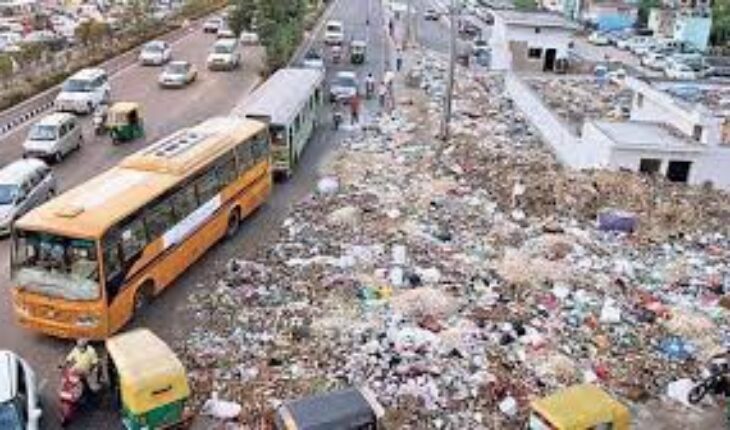By Dominick Rodrigues
Mumbai: Tourism waste and pollution is impacting the environment, wildlife and local communities, as litter deposited along coastlines transform beaches into ugly tourist destinations and untreated sewage in the rivers/seas pose a grave threat to aquatic life.
While waste diminishes quality of life for residents, trash dumped in scenic areas destroys the area’s natural beauty while offsetting ecosystem balance, according to
Studies that highlight 14% of all yearly solid waste being produced solely by tourists.Karo Sambhav, an electronic waste PRO offering solutions for e-waste management and EPR Services in India have been working on sustainable tourism criteria for India that not only initiates infrastructural adjustments but behavioral changes.
The tourism industry – being prone to over consumption — produces substantial amount of waste that puts tremendous stress on local waste management systems, since the increase in waste streams is seasonal due to many tourist destinations’ peak seasons in either summer or winter.
With the tourism industry becoming aware about its negative impact, India’s new tourism policy has the over-arching goal of sustainable & responsible tourism. Sustainable tourism criteria for India have been developed which highlight the need for not only infrastructural adjustments, but behavioral changes wherein both residents & visitors have a major role to play in sustainable waste management.
The concept of a ‘Responsible Traveler’ targets the behavior of visitors to ensure that there are no adverse social, cultural & environmental impacts on the destination city. This has been in India’s pipeline for almost a decade now, but of late there has been a great deal of resolve within the sector to mainstream sustainability in tourism.
To complement these efforts, the Himachal Pradesh State government last year introduced a plastic waste buy-back policy at Rs. 75 per kg of plastic waste and — 1.5 years into the pandemic — they have bought more than 1.35 lakh kg of plastic at INR 97lakh.
Meanwhile, Deutsche Gesellschaft für Internationale Zusammenarbeit GmbH India (GIZ India) & Karo Sambhav have been working jointly — under the development public private partnership (DeveloPPP.de) framework of the German Ministry of Economic Cooperation & Development (BMZ) — on a waste management project being implemented in Varanasi, Goa & Ghaziabad.
This objective highlights developing scalable, transparent, financially sustainable waste management systems, besides generating awareness amongst 100,000 stakeholders on the importance of recycling plastic and e-waste.
R.K. Verma, Joint Secretary, Ministry of Tourism, at a Webinar organized on the World Environment Day, emphasized, “Under Swadesh Darshan scheme, we are currently working in 400 destinations which have a component of Sustainable Waste Management in them and have successfully implemented said scheme least 100 monuments. Work is now being done to replicate it at a city level.”






